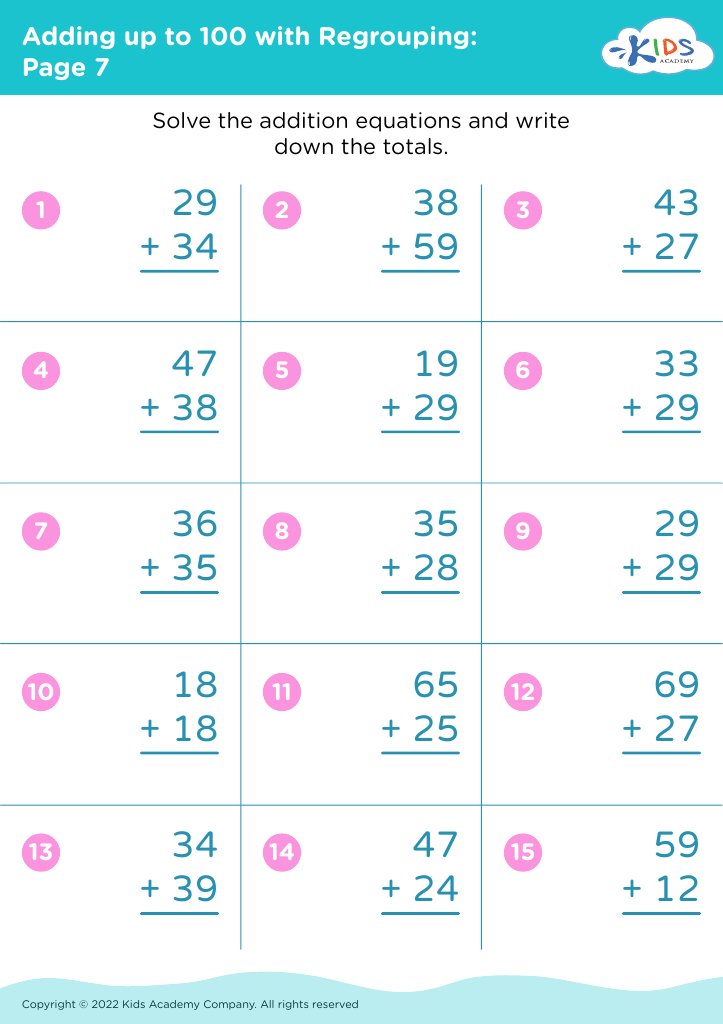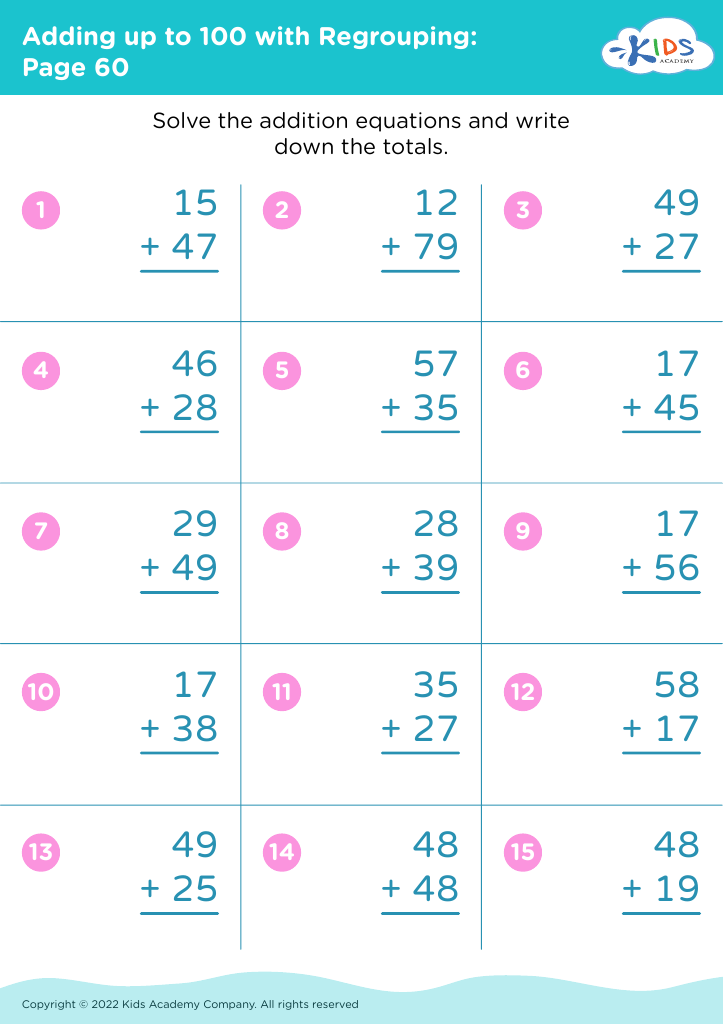Basic Addition Skills Adding up to 100 Worksheets for Ages 3-8
5 filtered results
-
From - To
Discover our "Basic Addition Skills Adding up to 100 Worksheets for Ages 3-8"! Perfectly designed for young learners, these fun and engaging worksheets help children master essential addition skills. Each activity offers simple, step-by-step exercises to boost confidence and build a strong math foundation. Ideal for home or classroom use, our worksheets feature colorful visuals, interactive problems, and hands-on activities that cater to early learners' needs. Give your child or students the tools they need to excel in math with Kids Academy's expertly crafted addition resources. Start building essential skills today!
Children develop foundational math skills at an early age, making basic addition up to 100 crucial for children ages 3-8. These early math skills are not just about learning numbers, but also about nurturing logical thinking, problem-solving capabilities, and confidence in tackling mathematical challenges. Mastering basic addition sets the groundwork for understanding more complex math concepts encountered in later grades, such as multiplication, division, and fractions.
A solid grasp of basic addition enhances numerical fluency, which allows children to perform calculations quickly and accurately. This fluency is essential for succeeding in more advanced math, science, and even everyday life skills like budgeting and time management. Early exposure and repeated practice also help children develop their memory and attention to detail, aiding their overall cognitive development.
Moreover, a strong foundation in addition fosters a positive attitude towards math. Children who feel capable in math are more likely to approach the subject with enthusiasm and less anxiety, making them more willing to engage with challenging problems. This positive relationship with math can lead to improved academic performance across subjects.
By investing time and effort into teaching basic addition skills, parents and teachers enable children to build a strong numerical foundation, fostering lifelong mathematical literacy and confidence.










%20(1).jpg)









